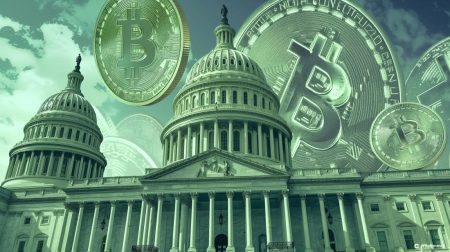Western Europe has emerged as a leading region in global crypto adoption, with a substantial number of daily traders ranging from 1.2 million to 1.5 million individuals. A new research report from Bitget highlighted Germany and France as the forefront of crypto activity in the region, while Austria experienced the most significant yearly growth with a 70% surge in users. Germany followed closely with a 69% increase, while other Western European countries showed slower growth rates between 15% and 20%. Western Europe benefits from a clearer level of compliance compared to other regions, as countries such as Germany, Switzerland, Belgium, France, Austria, Liechtenstein, Luxembourg, and the Netherlands adhere to the legislative framework established by the European Union for regulating crypto assets.
Centralized exchanges and spot trading dominate the cryptocurrency trading landscape in Western Europe. Users in Germany, Switzerland, and the Netherlands prefer trading futures, while other countries lean towards spot trading. Centralized exchanges attract the majority of daily traders, with centralized exchange (CEX) traffic surpassing decentralized exchange (DEX) traffic by a factor of 10. Among those opting for decentralized platforms, PancakeSwap and Uniswap emerge as the most popular exchanges. Coinbase Wallet, Metamask, Bitget Wallet, and TrustWallet are the preferred cryptocurrency wallets across the eight countries. Over the past year, centralized exchange traffic from Western European users has experienced significant growth, particularly in Germany, Switzerland, and Poland. Germany and Switzerland saw a year-over-year increase of over 50%, while Poland witnessed a growth rate of 145%.
Decentralized finance (DeFi) usage constitutes the majority of cryptocurrency activity in Western Europe, while peer-to-peer (P2P) trading volumes remain relatively low. The prevalence of purchasing digital assets using fiat deposits or linked cards contributes to the limited adoption of crypto P2P trading in the region. In contrast, regions like Southeast Asia rely more on P2P transfers as the primary instrument for cryptocurrency trading. Western European traders actively participate in decentralized projects, show familiarity with DEX tools and trading, engage with NFTs and Web3 platforms, and demonstrate interest in popular chain ecosystems like Solana. Emerging cryptocurrencies such as Ordinals, NFTs, RWAs, DePin, Solana ecosystem tokens, and meme coins have gained significant attention among traders in Western Europe throughout the year.
The Bitget research suggests that cryptocurrency participants in Western Europe typically possess a high level of education, exercise caution, and prioritize long-term investments. A significant portion of local users actively engage in both online and offline forums, including community Ask Me Anything (AMAs), where they exchange market insights and discuss industry trends. Another recent survey revealed that nearly 50% of European cryptocurrency holders owned Bitcoin in February, highlighting the widespread adoption of cryptocurrencies in the region. Western Europe has become a hub for crypto enthusiasts who are actively involved in trading, investing, and participating in the diverse crypto ecosystem, which includes DeFi, NFTs, and popular chain ecosystems like Solana.
Overall, Western Europe’s crypto landscape is characterized by a strong adherence to compliance regulations set by the European Union, a preference for centralized exchanges and spot trading, and a significant focus on DeFi activities. Germany, Switzerland, and Poland have experienced substantial growth in crypto trading activity, while countries like France and Belgium have shown slower growth rates. Despite the limited adoption of P2P trading, Western European traders are actively engaging with decentralized projects, DEX tools, NFTs, and Web3 platforms, indicating a strong interest in the evolving crypto space. The region’s traders exhibit a cautious approach, prioritize long-term investments, and actively participate in market discussions both online and offline. The high level of education and engagement among cryptocurrency users in Western Europe indicates a promising future for the continued growth of the crypto market in the region.















